SUMMARY
This is AI generated summarization, which may have errors. For context, always refer to the full article.
![[OPINION] Why progressive labor is supporting Leni and Kiko](https://www.rappler.com/tachyon/2022/04/TL-Why-progressive-labor-leni-kiko-Aprll-28-2022.jpg)
The May 9 polls is arguably the most important elections since the transition from the Marcos dictatorship to elite democracy in 1986. At stake in the elections is either the consolidation of the turn to authoritarianism or a break in the regime of killings and red-tagging. Respect for civil liberties and the exercise of democratic rights are important for the working class and organized labor as it is for the Filipino people.
Recently, KMU endorsed the tandem of Leni Robredo and Kiko Pangilinan. As early as October last year, just more than a week after Leni announced her candidacy, the Alliance of Labor Leaders for Leni (ALL4Leni) — comprised of groups such as SENTRO, FFW, NACUSIP, NFL, NUBE, UFSW, and PM — was formed to support her presidential bid. Progressive labor was an early supporter along with farmer and urban poor groups.
![[OPINION] Why progressive labor is supporting Leni and Kiko](https://img.youtube.com/vi/cMny9hhga3s/sddefault.jpg)
Democratic space
The defense of democratic space is the main motivation for progressive labor to support Leni-Kiko. A robust civic space is crucial for labor and social movements to advance its advocacies and win its demands.
It is well-documented that the bloody drug war under the administration of Rodrigo Duterte overwhelmingly claimed victims from poor communities. Killing were normalized and drug addicts othered as a menace to society. Rights defenders and labor activists were next, with the NTF-ELCAC leading the way with rabid red-tagging.
Killings of labor leaders and activists in the Philippines were rampant even before Duterte rose to power. But the climate of impunity under Duterte enabled the enemies of labor as well as facilitated state repression. Just months into Duterte’s rule, two labor leaders and five farmer activists were killed within weeks in September 2016. This was a portent of the iron fist policy against human rights defenders.
Today, unions face systematic harassment from security forces as well as employers. Union officers are visited by the police and interrogated about their union activities. They are asked to disaffiliate from their federations and centers. Labor leaders and organizers are called to barangay halls to be probed by soldiers about their involvement in progressive groups. Ecozones are militarized under a so-called “industrial peace” program which has been cited by the European Union for infringement of the right to unionize. This year, the International Labor Organization released a report taking the government to task for inaction on complaints of labor repression. The pandemic became a weapon against protests and activism. Red-tagging has not stopped even during the election campaign.
The repression of the labor and other social movements will only escalate under a Marcos-Duterte regime. Thus, progressive labor has to wage a defensive battle to preserve the civic space that it needs so that it can fight for the rights and welfare of workers.
Movement against authoritarianism
While the defense of the democratic space appears to be a minimalist program for progressive labor, any labor activist knows that such is a necessity for grassroots organizing and advocacy to prosper. A maximalist platform of social change may be tempting for progressive labor, but such disregards the actual state of working-class demoralization and union decline. Furthermore, it is blind to the real upsurge of people’s activism around the candidacy of Leni and Kiko, and what they represent.
After six long years of killings, incompetence, corruption, mismanagement, and misogyny, people from all walks of life and from all corners of the country are now rising up against authoritarianism through creative forms of campaigning, by attending grand rallies and knocking on doors to talk to voters — all to push for the victory of Leni-Kiko against all odds. Despite a dearth of big campaign donors and local trapo endorsement, the Leni-Kiko campaign has achieved a momentum driven by grassroots voluntarism. Leni has become an inspiration, and the elections has provided the arena to shake masses of Filipinos from indifference, even passive support, to the regime of killings, and instead to take the leap of faith to electoral activism and voluntarism.
Progressive labor cannot stand aloof from this groundswell of people’s resistance against authoritarianism. Instead, progressive labor embeds itself in this people’s movement as its interest in expanding the democratic space intersects with the people’s hopes and dreams for a discontinuity of the past six years.
Covenant with labor
While its bottomline is the defense of the democratic space, progressive labor has successfully engaged with Leni and Kiko for the most urgent working class demands. The covenant between workers and Leni-Kiko include the passage of the Security of Tenure bill and other policies to curb contractualization in both the private and public sector; public employment programs to provide jobs, including climate jobs; increase of workers’ wage to the ideal of a living wage; just transition for transport workers, including the mainstreaming of service contracting; stop to the killings of activists; and regular dialogues with the labor movement. For progressive labor, these concrete policies put flesh into the campaign slogan of “Gobyernong Tapat, Angat Buhay Lahat.”
The commitment by Leni and Kiko to this platform of pro-worker reforms are most welcome. Their track record of development work encourages optimism that this will not remain promises. But progressive labor is aware that at the end of the day, these demands need a strong movement and popular support to be realized. And it is precisely the democratic space, the respect for civil liberties and human rights, that will enable and facilitate the development of stronger labor and social movements that can fight and win for the demands of workers and those in the laylayan.
The prospect of finally ending the regime of killings and red-tagging is at hand even as the peril of its consolidation looms large as well. The momentum of the people’s movement against authoritarianism in the shape of an electoral upsurge for the candidacy of Leni-Kiko is undeniable, even as the question of whether there is still enough time remains uncertain.
What is certain and cannot be denied is that today and for the remaining days of the campaign, thousands of volunteers from artists to activists, celebrities to common Filipinos, are canvassing households and flipping voters. Among them are union officers and members who take time off from work or forego their weekends to convince co-workers in their workplaces, neighbors, and strangers within their communities to vote for Leni-Kiko because the tandem upholds the urgent demands of workers and the poor, and guarantee the space for labor and human rights.
“Like organizes like” is a principle known by heart by labor unionists. It is thus the unique contribution of the progressive labor movement that its organizers and activists are lending a hand to the people’s electoral movement in the hopes of securing a more open and tolerant society, and a better life for all Filipinos in the next six years. – Rappler.com
Rene Magtubo is national chair of Partido Manggagawa and an incumbent city councilor in Marikina.
Add a comment
How does this make you feel?
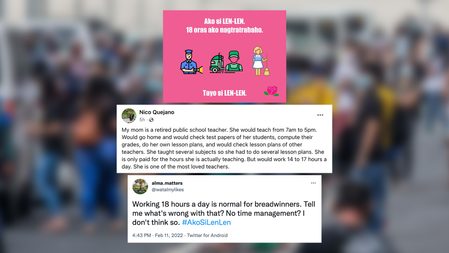
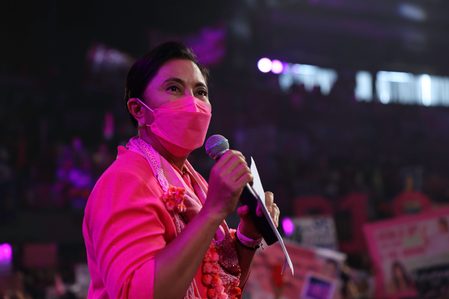
![[WATCH] In The Public Square with John Nery: Preloaded elections?](https://www.rappler.com/tachyon/2023/04/In-the-Public-Square-LS-SQ.jpg?resize=257%2C257&crop=414px%2C0px%2C1080px%2C1080px)
![[Newspoint] 19 million reasons](https://www.rappler.com/tachyon/2022/12/Newspoint-19-million-reasons-December-31-2022.jpg?resize=257%2C257&crop=181px%2C0px%2C900px%2C900px)

![[OPINION] The long revolution: Voices from the ground](https://www.rappler.com/tachyon/2022/06/Long-revolution-June-30-2022.jpg?resize=257%2C257&crop=239px%2C0px%2C720px%2C720px)
![[OPINION] I was called a ‘terrorist supporter’ while observing the Philippine elections](https://www.rappler.com/tachyon/2022/06/RT-poster-blurred.jpeg?resize=257%2C257&crop_strategy=attention)
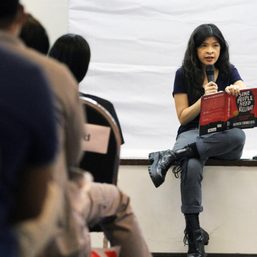

![[OPINION] ‘Some people need killing’](https://www.rappler.com/tachyon/2024/04/tl-some-people-need-killing-04172024.jpg?resize=257%2C257&crop_strategy=attention)


![[OPINION] In a changing climate, how do we ensure safety and health at work?](https://www.rappler.com/tachyon/2024/04/Climate-change-safety-workers-April-25-2024.jpg?resize=257%2C257&crop_strategy=attention)
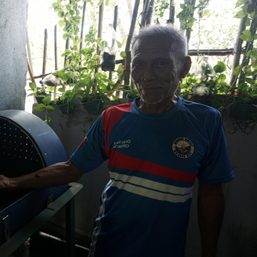
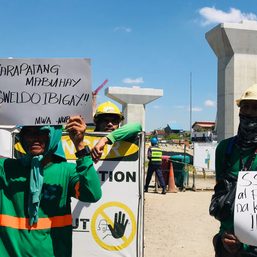

![[Episodes] Fairness to freelancers](https://www.rappler.com/tachyon/2024/02/Freelance-Writers-Guild-of-the-Philippines-rate-guide.jpg?resize=257%2C257&crop=217px%2C0px%2C720px%2C720px)
![[OPINION] Sara Duterte: Will she do a Binay or a Robredo?](https://www.rappler.com/tachyon/2024/03/tl-sara-duterte-will-do-binay-or-robredo-March-15-2024.jpg?resize=257%2C257&crop_strategy=attention)
![[New School] Tama na kayo](https://www.rappler.com/tachyon/2024/02/new-school-tama-na-kayo-feb-6-2024.jpg?resize=257%2C257&crop=290px%2C0px%2C720px%2C720px)




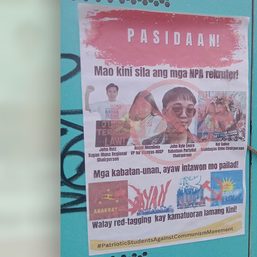
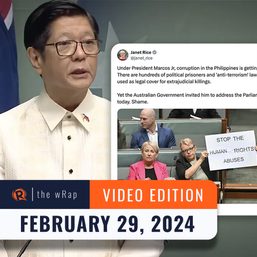
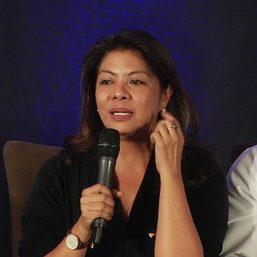
![[OPINION] Jhed and Jonila’s fight for justice](https://www.rappler.com/tachyon/2024/02/TL-jhed-and-jonilla.jpg?resize=257%2C257&crop=411px%2C0px%2C1080px%2C1080px)
There are no comments yet. Add your comment to start the conversation.